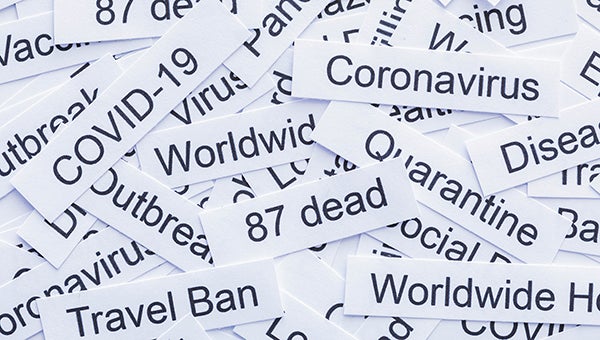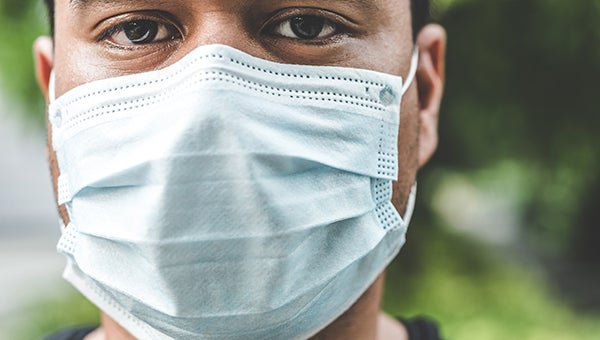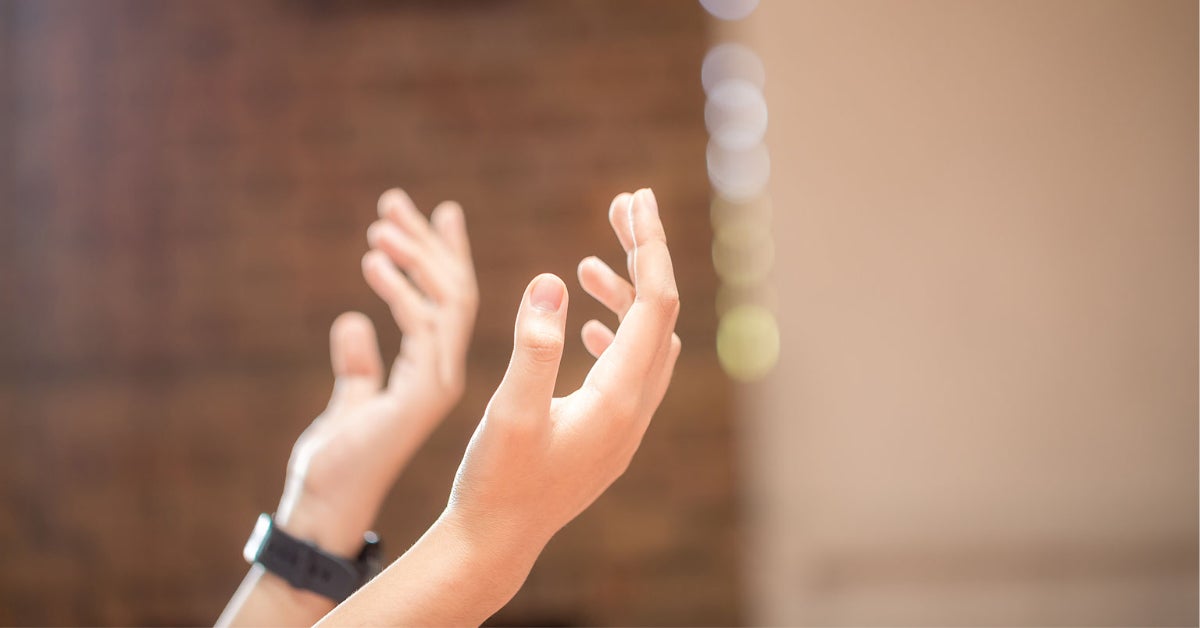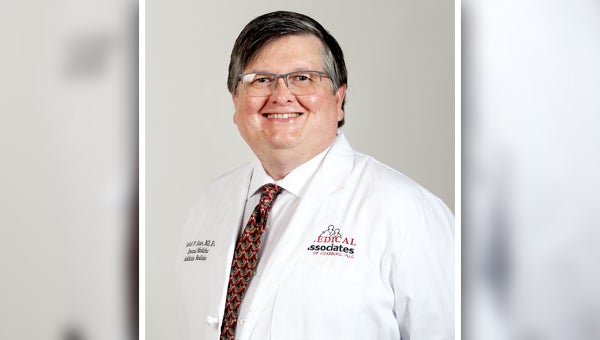Mental health experts: There are better ways to cope during these uncertain times
Published 12:48 pm Thursday, April 9, 2020
When people begin resuming their lives in the wake of restrictions placed out of concern for the COVID-19 virus, they’ll be entering a new world full of challenges as they move from crisis and survival mode to readjusting to a normal life.
The changes and restrictions put in place by local and state governments have forced people and businesses to develop different strategies to make it through uncertain times while trying to keep some semblance of a normal life.
It’s a difficult time. People are working from home while caring for children who would normally be in school. Children are going to school online instead of in the classroom.
Normal spring activities are restricted because parks and other recreational activities are closed, and all those elements can increase stress levels in people and families as they wait anxiously for restrictions to be lifted so they can return to their world before COVID-19.
And mental health professionals believe that readjustment will not be immediate.
“We’re preparing for this to be something that is going to signal a life-changing challenge for the rest of this year and further — there will be long-term implications after the crisis has passed,” said Dr. Walter Frazier, director of Grace Christian Counseling Service.
Presently, he said, people are in the throes of crisis and in a survival phase. What they need, he said, “Is called psychological first aid.”
People, he said, need good information so they can make good decisions.
“Thinking back, the most comparable situation was Hurricane Katrina,” Frazier said. “For weeks after the storm, people depended on information that was vital for them to make decisions and they needed answers to have the ability to make decisions.
“People need accurate information to get groceries, to pay the rent or not pay the rent; to give their child an education.”
Everyone, Frazier said, is scrambling to make adjustments and the more accurate information they have about things, the better.
“They’re coping with the present circumstances,” he said.
When things will really hit home, Frazier said, is when the stay at home orders are lifted and people find themselves facing a new set of circumstances as they try to return to life as it was before the restrictions were in place.
“Things will have changed; their job has been impacted or they had a family member who has health complications or they lost a family member because of the virus,” he said. “They may have to file for bankruptcy or move because their financial situation has become unsustainable.
“The disease is one aspect of it; someone survives and wakes up to long-term consequences because of the long economic recovery. The economic aspect is as serious as the recovery.
“This is a new experience; a few new mental health cases may occur. Cases may pick up in the near future as people settle in.”
Right now counselors at Grace Christian Counseling Service are not seeing clients in person, Frazier said. Grace has developed a virtual counseling system where people can talk with counselors through their smartphone or computer.
“We have been able to maintain a HIPAA compliant network where clients can fill out their paperwork and meet the counselors. We can do individual or family counseling.”
He said Grace has also worked with agencies in other states to allow counselors to go across state lines.
But getting counseling for problems, Frazier said, is a secondary concern for some people, and Grace has seen people cancel or not keep appointments.
“The reason for the drop in calls is the survival,” he said. “The mode is to take care of what is immediate today and tomorrow. Counseling is put on the back burner.”
People are focusing more right now on taking care of the basic needs and the needs of dependents.
“The family conflicts, addiction problems, anxiety, chronic health problems, all those are exacerbated. That is added to the medical emergency. People might feel anxious to get out and do something.”
To help people get through this period, Frazier said the best coping strategy is to look to create better opportunities in relationships and get involved in physical and spiritual activity.
“There is worship; churches are using all kinds of ways to reach out to people,” he said. “They’re holding services online, live streaming and using technology in different ways, it’s fantastic.”
And there are other ways of surviving.
One is by reducing exposure to social media, said Dr. Daniel Williams, associate professor and director of the Department of Psychiatry and Human Behavior’s Division of Psychology at the University of Mississippi Medical Center.
“There’s no reason to be on Twitter all day, or to have the news on in the background all day,” Williams said. “It creates fear and more uncertainty, and it’s not good for our mental health to be that connected.”
“You can control your exposure to information,” said Dr. Crystal Lim, a psychologist and associate professor in UMMC’s psychiatry department. “But there are a lot of great stories of hope and of things that people are doing at this time. Create a balance.”
And start looking toward the future.
“What challenges will you face if you stay home four, six or eight weeks?” Williams asked. “What will be your pressure points, and how can I proactively work on that so that I don’t have to scramble at the last minute? You can come up with better solutions than you would in a moment of panic, and can face situations knowing that you have done everything in your power to solve it.”
And focus on the good you are doing by staying inside, he said.
“We have to remind ourselves of why it’s worth it to stay inside,” Williams said. “Our brain tells us what the short term is worth. We have to remind ourselves of the long-term benefits and the ultimate goal, and if we don’t keep that in mind, it will be frustrating and annoying to make these sacrifices.
“There are vulnerable people in your community. This is your gift to humanity, and to the community, that you are willing to engage in the sacrifices that health experts are asking of us,” he said.







